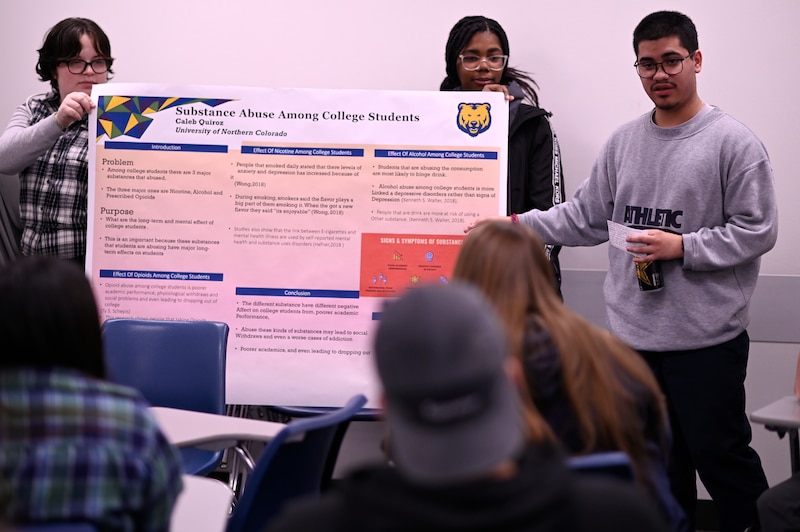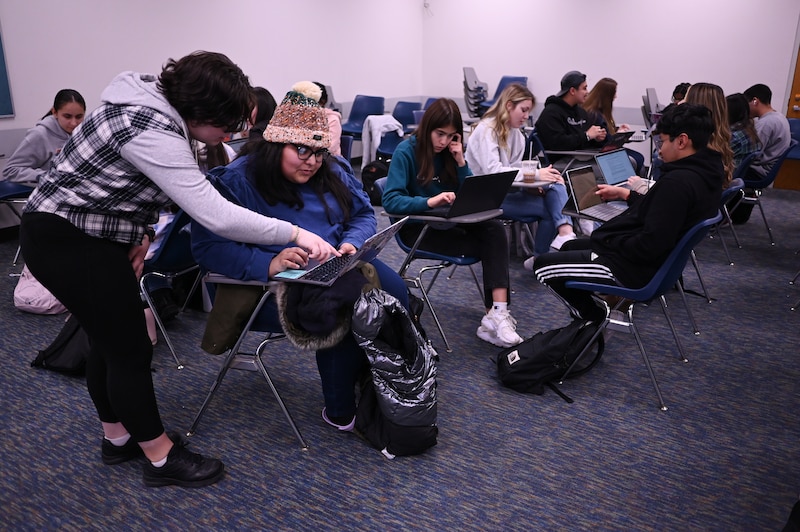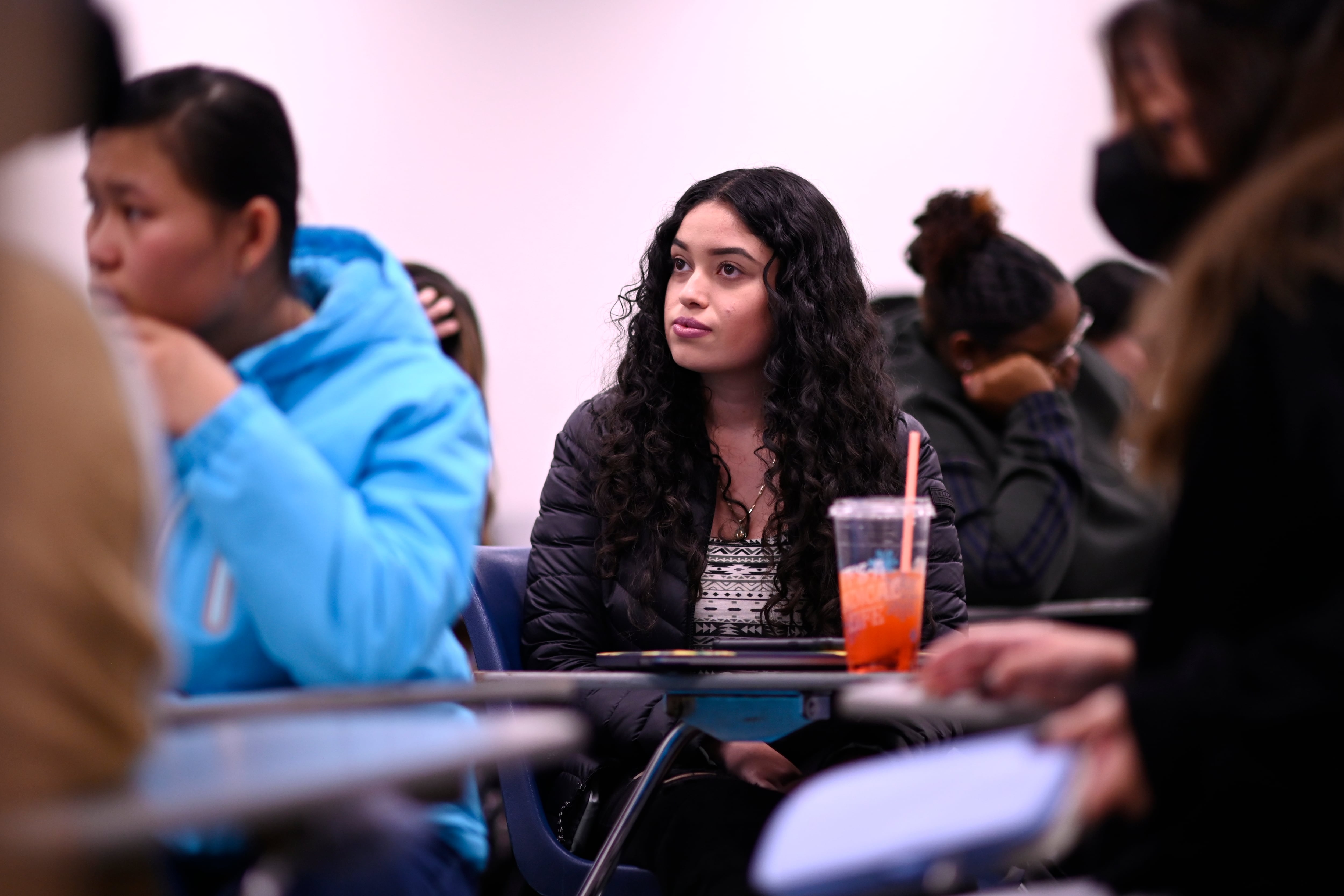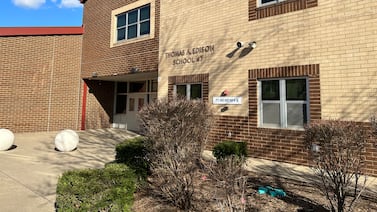Arizbeth Cortez felt confident college would be just like high school and she’d ace all her classes. After all, she’d never received anything less than an A grade at Denver’s Bruce Randolph School.
On her first exam at the University of Northern Colorado, however, she got a B. It brought a flood of tears and worries that she didn’t have the skills to meet her expectations.
“I ended up with anxiety about exams because I didn’t know how to study very well,” said Cortez, 18, a freshman.
The challenge of college can be an eye opening experience for even the brightest student. But Cortez realized she didn’t know how to manage her time or know how to prepare for a test.
They’re skills she missed while attending high school during the pandemic, when she took her classes virtually for more than a year, rarely had homework, and most of the tests she took were open book. Most of her junior year was spent learning from home and she saw her mom and sister more than peers and teachers.
Cortez isn’t alone in her first semester struggles, which at times left her rattled. College leaders have encountered many more freshmen like her this year — students who don’t have the base of skills that will make them successful in college. And they all agree about the cause: nearly five high school semesters upended by the pandemic, and less accountability placed on students because of it.
Educators say students entering college this fall have fewer study and test-taking skills, such as simple tactics like preparing note cards or the value of study groups. They’re less communicative with professors when they need extra time to complete assignments, have difficulty staying on task, and have fewer coping mechanisms when adversity strikes.
University of Northern Colorado administrators say they have had to double down on efforts to help freshmen succeed, teaching basic skills to help them adjust and navigate the new environment.
The gap between how prepared freshmen typically are for college and how this year’s class is performing surprised Stephanie Torrez, the university’s student academic success assistant vice president, who has spent more than 26 years in higher education.
“This is who students are now. It’s not what I’ve expected, even from my own children,” she said. “I have a freshman in college here and he’s not the person he was two years ago.”
The college has a few strategies to help, such as an increased emphasis for peer mentors, tutors, and counselors to connect one-on-one with freshmen so they can figure out if they need on-campus resources.
University leaders say they are optimistic a focus on individual needs will pay off. The retention rate for the Class of 2021 was the highest it’s been in the last decade, offering hope that the school is on the right track. But they realize that as more students come unprepared, the school might need to increase the number of mental health counselors and train more staff on how to help when students are struggling with classes or with their mental health.

Pandemic disruptions leave gaps in classroom, social skills
In 2021, Cortez returned to in-person classes for her senior year. While returning to the classroom was manageable, she felt less willing to interact with classmates. Even now, social situations are tough. It sometimes feels easier to close herself off.
“I have to tell myself it’s not so bad being social,” Cortez said. “But it can be scary. I’m used to always having my mom or my sister around.”
Those anxieties are showing up in lots of classes at the University of Northern Colorado this fall, faculty said. Students are disengaged and less motivated to attend events, even fun ones like football games.
College leaders know that ultimately, they have to meet students wherever they’re at to address those gaps, said Hollie Chessman, research director at the American Council on Education who studies student mental health and well-being. And students are heading to college after unique circumstances, she said.
Some schools have responded to the challenge by using federal relief money to increase mental health resources on campus. Others are using summer bridge programs to help students adjust to college life, Chessman said.
About 40% of University of Northern Colorado students are the first in their family to go to college. That’s a population that historically has needed more support to adjust to campus life because their parents can’t give them as much guidance. But even students from college-going families can struggle in a new environment.
One strategy: University 101, an elective offered to all freshmen. This fall, about a quarter of the freshmen took the class, similar to previous years.
But instructors have struggled more this fall within that class, which covers study skills, work-life balance, and stress management. Attending therapy counts as extra credit.
In a class that’s supposed to be low-stakes and teach students about accountability in college, this year, more students than usual have turned in assignments late, and they sometimes argue whether they should show up in person, said Jordan Martell, who has taught the class for four years.

Students are also more disruptive during class — talking during lectures or arriving late, Martell said. Students have also argued against a zero grade rather than do the work.
“Students kind of are struggling to have that awareness of accountability,” Martell said.
Still, now that the semester is wrapping up, some students are feeling more comfortable. Cortez chatted quietly with some peers on the last day of University 101, and says they have helped her break out of her shell.
The university’s Center for Human Enrichment, a program that supports students who are the first in their families to go to college, has provided crucial academic and other support.
Through one-on-one help, Cortez has learned how to study through repetition, and the value of note cards and color coding her notes. Staff encouraged her to get more involved with campus and provided a safe space for her to talk about what’s going on in her life.
“The program makes me feel like I am at home,” Cortez said.
Jason Gonzales is a reporter covering higher education and the Colorado legislature. Chalkbeat Colorado partners with Open Campus on higher education coverage. Contact Jason at jgonzales@chalkbeat.org.







